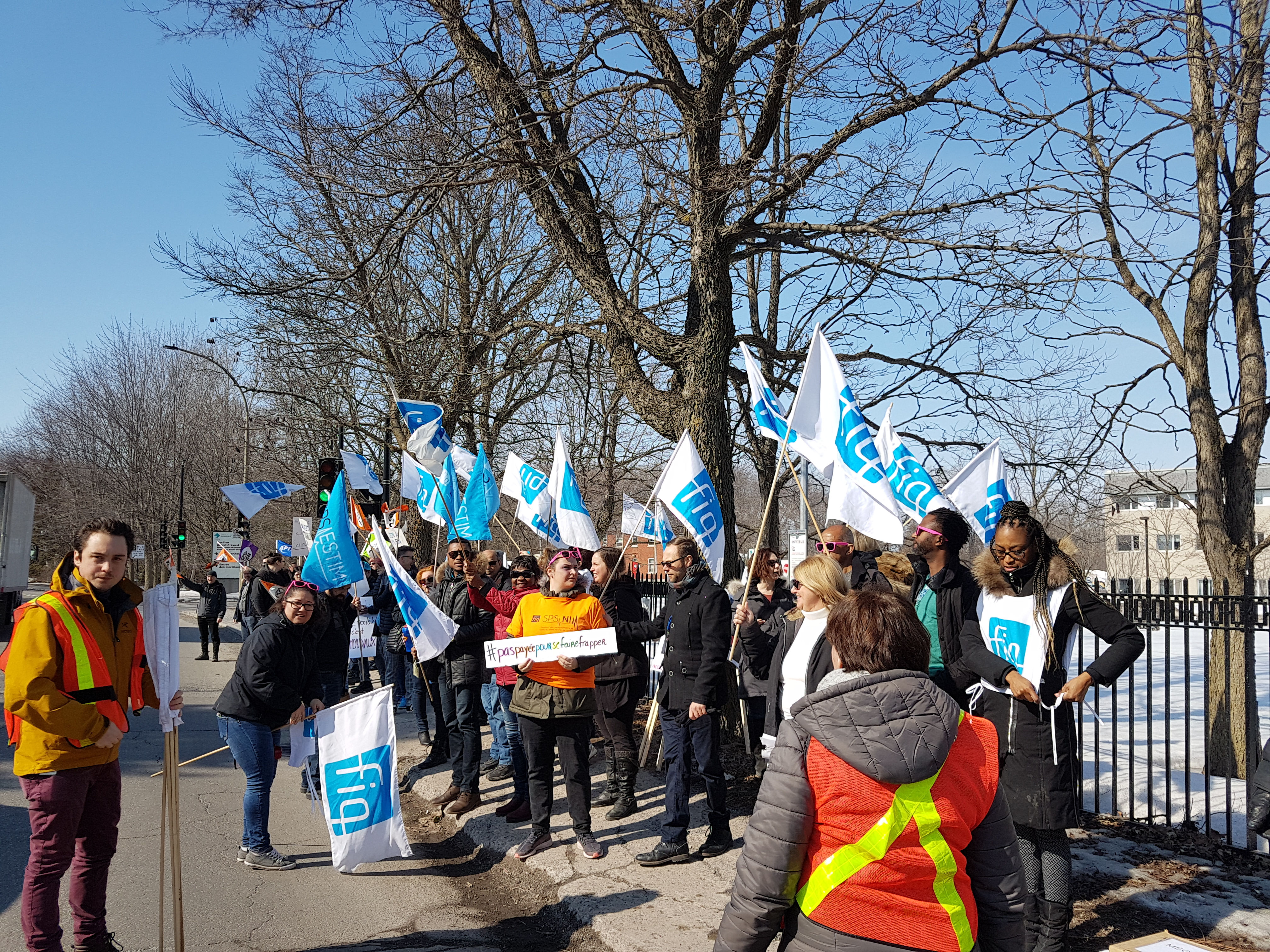
Professionals denounce the violence they incur!
The APTS du Nord-de-l’Île-de-Montréal and FIQ – Syndicat des professionnelles en soins du Nord-de-l’Île-de-Montréal (FIQ-SPSSNIM) members, who work with patients at the Pavillon Albert Prévost, are denouncing, along with CSN representatives, the violence they incur on the job and are calling on the administration at the CIUSSS du Nord-de-l’Île-de-Montréal, to ensure staff safety as soon as possible.
Too many assaults!
On October 29th, a patient, known for his aggressive history, violently attacked a psychiatrist. This assault involved more than a dozen employees at the Pavillon Albert Prévost, several of whom have traumatic aftereffects. “This is not an isolated incident as the employers allege and the healthcare professionals are regularly exposed to it. If the risk is inherent in our daily routine, assaults should not be fatal!”, stated Kathleen Bertrand, President of the FIQ-SPSSSNIM. On February 6, 2020, a 24-year-old man who ran away from the Pavillon Albert Prévost Emergency Department and was found on the 2nd floor unit, the same unit the October 29th assault happened on. The patient refused to cooperate in going to isolation, tried to flee and hit several people. Some of them suffered minor injuries. The unit’s employees and patients have been under considerable stress and several were plunged back into the traumatic memories from October 29, 2019.
Employers’ responsibilities
In March 2020, devices to correct the situation, despite the CNESST inquiries, are slow in coming, and the CIUSSS employees are still exposed to daily risks. “It is unacceptable to place our members in such situations and we are demanding that the employer roll out all the preventive mechanisms to protect employees as quickly as possible. Free movement in the building, a mixture of clientele and the missions on the 2nd floor unit must be reviewed forthwith”, said David Routhier, President of the local APTS executive at the Nord-de-l’Île de Montréal.
Stop the trivialization
The data published by the CNESST on injuries due to workplace violence show that the “health care and social assistance” category is the sector where the most physical injuries are found, with 61.5% of injuries accepted in 2017. “The provisions of an Act respecting occupational health and safety are clear however: they are designed to prevent industrial accidents and occupational diseases. The purpose of this law is the elimination, at the source, of dangers for the health, safety and physical well-being of workers; we are expecting quick interventions from the government so that employers no longer trivialize these situations!”, Véronic Lapalme, Vice-President of the APTS and Denyse Joseph, Vice-President of the FIQ stated together.